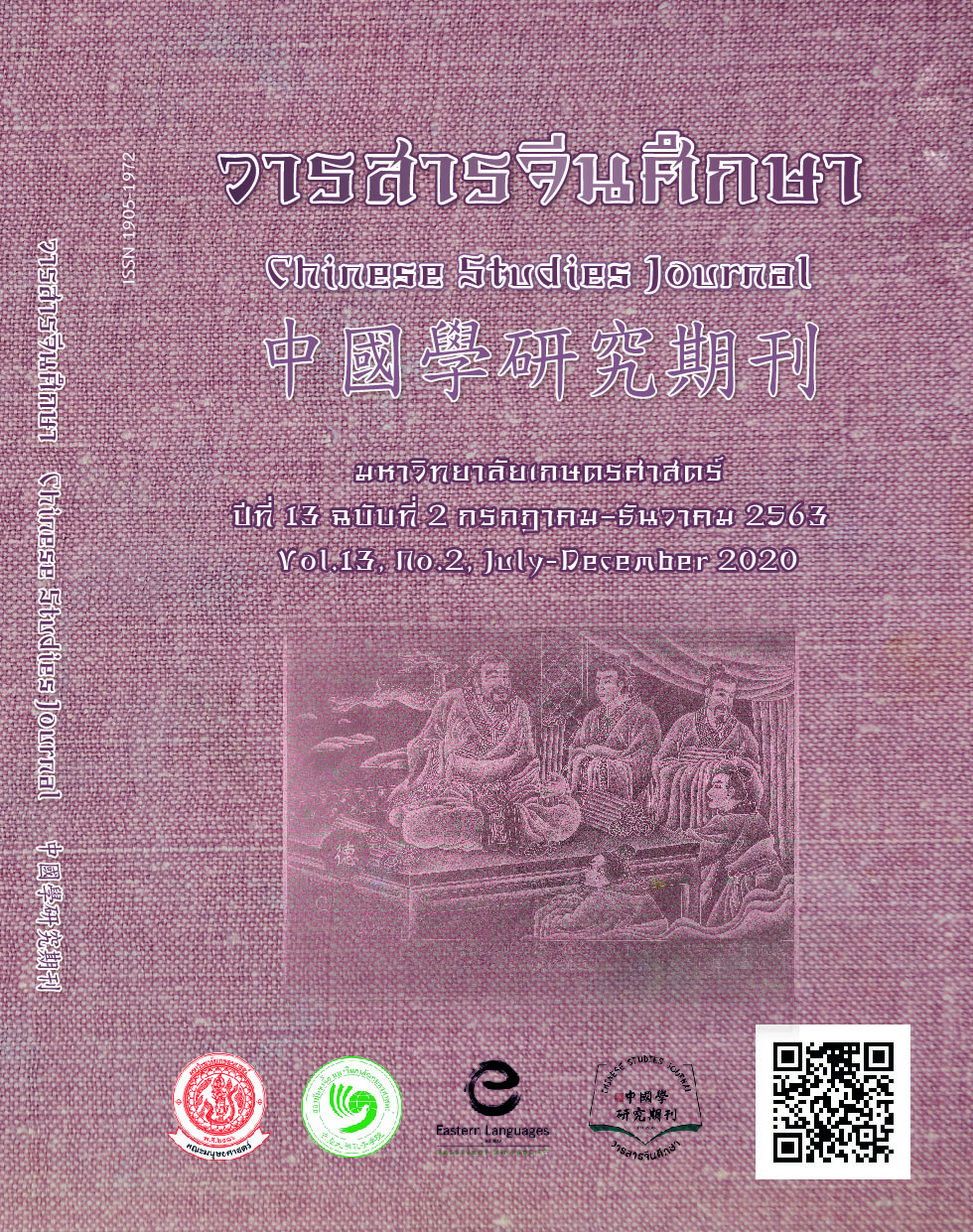The Study of the Problems of the Freedom during the COVID-19 Pandemic in Diary of the Wuhan Lockdown
Main Article Content
Abstract
The objective of this research paper is to present the study of government's freedom using to the people for controlling the epidemic of COVID-19, and the arising impacts from the uses of freedom, shown in the literature of "Diary of the Wuhan Lockdown." The research methodology is to interpret the text and to present it in a descriptive analysis method. The research results show that Wuhan people’s freedom relies on the relationship between the people and the government. The government lockdown measures are not the cause of deprivation of people's freedom. However, implementing the measures resulting from government operation exceeds one of its functions and not performing another function. Both of these causes result as a barrier for the people to access freedom; furthermore, there are the main reasons for destroying people's trust with the government.
Article Details
ผลงานทางวิชาการที่ลงตีพิมพ์ในวารสารจีนศึกษา มหาวิทยาลัยเกษตรศาสตร์ เป็นลิขสิทธิ์ของผู้เขียนหรือผู้แปลผลงานนั้น หากนำลงในวารสารจีนศึกษาเป็นครั้งแรก เจ้าของผลงานสามารถนำไปตีพิมพ์ซ้ำในวารสารหรือหนังสืออื่นได้โดยมิต้องแจ้งให้ทราบล่วงหน้า แต่หากผลงานที่ได้รับพิจารณานำลงในวารสารจีนศึกษา เป็นผลงานที่เคยตีพิมพ์ที่อื่นมาก่อนเจ้าของผลงานต้องจัดการเรื่องปัญหาลิขสิทธิ์กับแหล่งพิมพ์แรกเอง หากเกิดปัญหาทางกฎหมาย ถือว่าไม่อยู่ในความรับผิดชอบของวารสารจีนศึกษา มหาวิทยาลัยเกษตรศาสตร์ ทั้งนี้ ความคิดเห็นต่างๆ ในบทความเป็นความคิดเห็นส่วนตัวของผู้เขียน ไม่เกี่ยวกับกองบรรณาธิการวารสารจีนศึกษา มหาวิทยาลัยเกษตรศาสตร์
References
Boris Kabanoff. (1996). Equity, Equality, Power, and Conflict, Academy of Management Review. 16(2): 416-441.
Isaiah Berlin. Two Concepts of Liberty. In David Miller (Eds.). (1991). Liberty (33-57). Oxford: Oxford University Press.
John Locke. Second treatise of government. Retrieved 11 July 2520, from https://www.earlymoderntexts.com/assets/pdfs/locke1689a.pdf
Kamila Lewandowska. (2018). Using Isaiah Berlin’s two concepts of liberty to rethink cultural policy: a case of Poland, International Journal of Cultural Policy, 24(2): 145-163.
Oscar and Mary Handlin. (1961). The Dimensions of liberty. Cambridge: Belknap Press of Harvard University Press.
Quentin Skinner. (1995). The Paradoxes of Political Liberty. In David Miller (Eds.), Liberty (183-205). New York: Oxford University Press.
Stein Ringen. (2005). Liberty, Freedom and Real Freedom, Society. 42(3): 36-39.
ภาษาจีน
陈敏荣. (2006). 梁启超进化论伦理观中的自由意蕴 —— 以《新民说》为中心, 华中科技大学学报. 1: 77-81.
郭晶. (2020). 武汉封城日记,台湾:联经出版社.
李梦生. (1998). 中华古籍译注丛书:左传译注,上海:上海古籍出版社.
宋广波,刘颖涟. (2008). “自由主义与近代中国(1840-1949)” 学术研讨会综述, 吉首大学学报. 6(3): 30-37.
中华人民共和国宪法. Retrieved 11 August 2520, from http://www.xinhuanet.com/politics/2018lh/2018-03/22/c_1122572202.htm.
ภาษาไทย
กัวจิง. (2563). ไดอารี่ล็อกดาวน์อู่ฮั่น. กรุงเทพฯ: สำนักพิมพ์มติชน.
โคโรนา: ไดอารี่สาวอู่ฮั่น หนึ่งสัปดาห์แห่งความโดดเดี่ยวในเมืองไร้สรรพเสียง. Retrieved 2 เมษายน 2563, from https://www.bbc.com/thai/features-51347817
นอร์แบร์โต บ็อบบิโอ. (2558). เสรีนิยมกับประชาธิปไตย. กรุงเทพฯ: โครงการจัดพิมพ์คบไฟ.
ไนเจล วอร์เบอร์ตัน. (2560). เสรีภาพในการพูด: ความรู้ฉบับพกพา. กรุงเทพฯ: โอเพ่นเวิลด์ส พับลิชชิ่ง เฮาส์.
วรเจตน์ ภาคีรัตน์. (2561). ประวัติศาสตร์ความคิดนิติปรัชญา. กรุงเทพฯ: อ่านกฎหมาย.
แอนดรูว์ แคลปแฮม. (2559). สิทธิมนุษยชน: ความรู้ฉบับพกพา. กรุงเทพฯ: โอเพ่นเวิลด์ส พับลิชชิ่ง เฮาส์.
แอมเนสตี้ อินเตอร์เนชั่นแนล. ทำไมรัฐจึงต้องดูแลประชาชน?: การรับมือกับโควิด19 และพันธกรณีด้านสิทธิมนุษยชน. Retrieved 2 เมษายน 2563, from https://www.amnesty.or.th/latest/news/778/
Kanokporn Numtong. จื๋อฉ่านไม่ทำลายวิทยาลัย [Facebook]. Retrieved 7 สิงหาคม 2563, from https://www.facebook.com/kanokpornnumtong


